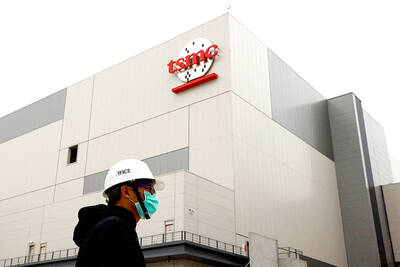US Federal Reserve policymakers last month began laying groundwork for an eventual retreat from easy monetary policy with a discussion of how to best control interest rates as they remove trillions of US dollars from the financial system.
No final decisions were taken, and minutes of the session, released on Wednesday, said the Fed was merely engaged in “prudent planning” and not signaling it was ready to “normalize” monetary policy or raise interest rates any time soon.
Still, the discussion at the central bank’s April 29 to 30 policy-setting session, coupled with fresh comments by top US officials, show an intensifying discussion over both exit-strategy details and a developing split over basic analysis of the US economy.
The next policy meeting will be in the middle of next month, when the panel will be joined by Stanley Fischer, the former Bank of Israel governor whose nomination to the Fed’s board was confirmed on Wednesday by the US Senate. The Senate has yet to act on his separate nomination to be Fed vice chairman.
Though the economic forecasts reviewed at last month’s meeting remained upbeat, the minutes indicated general agreement that any sustained uptick in inflation was still perhaps years off.
Participants in the meeting undertook an apparently wide-ranging discussion about US labor markets, dissecting research that suggests a falling share of short-term unemployed could prove an inflationary spark even with long-term joblessness running unusually high — a finding a number of officials said they considered suspect.
Indeed, sluggish wage gains were cited as one indication that the labor market could have more slack than the nation’s 6.3 percent jobless rate suggests.
However, other officials offered warnings.
“Some participants reported that labor markets were tight in their districts or that contacts indicated some sectors or occupations were experiencing shortages of workers,” the minutes reported.
The discussion over how to exit the Fed’s highly accommodative policy, once the time comes, is the latest sign that the era of near-zero rates and heavy bond buying is drawing to a close.
“Participants generally agreed that starting to consider the options for normalization at this meeting was prudent,” the Fed said. It added that the discussion “did not imply that normalization would necessarily begin sometime soon.”
Investors expect the Fed to raise rates in the middle of next year at the earliest, an expectation that was little changed by the central bank’s latest minutes.

Stephen Garrett, a 27-year-old graduate student, always thought he would study in China, but first the country’s restrictive COVID-19 policies made it nearly impossible and now he has other concerns. The cost is one deterrent, but Garrett is more worried about restrictions on academic freedom and the personal risk of being stranded in China. He is not alone. Only about 700 American students are studying at Chinese universities, down from a peak of nearly 25,000 a decade ago, while there are nearly 300,000 Chinese students at US schools. Some young Americans are discouraged from investing their time in China by what they see

Taiwan Semiconductor Manufacturing Co (TSMC, 台積電), the world’s largest contract chipmaker, yesterday reported record sales for the first quarter, which analysts attributed to solid demand for emerging technologies. Consolidated revenue totaled NT$592.64 billion (US$18.51 billion) in the January-to-March period, up 16.5 percent from a year earlier, but down 5.26 percent from the previous quarter, TSMC said in a statement. The first-quarter revenue beat analysts’ average projection of NT$579.5 billion, Bloomberg News reported. That performance lends weight to expectations that the world’s most valuable chipmaker would return to solid growth this year after weathering a post-COVID-19-pandemic cratering of smartphone and computer sales. TSMC is budgeting

MAJOR DROP: CEO Tim Cook, who is visiting Hanoi, pledged the firm was committed to Vietnam after its smartphone shipments declined 9.6% annually in the first quarter Apple Inc yesterday said it would increase spending on suppliers in Vietnam, a key production hub, as CEO Tim Cook arrived in the country for a two-day visit. The iPhone maker announced the news in a statement on its Web site, but gave no details of how much it would spend or where the money would go. Cook is expected to meet programmers, content creators and students during his visit, online newspaper VnExpress reported. The visit comes as US President Joe Biden’s administration seeks to ramp up Vietnam’s role in the global tech supply chain to reduce the US’ dependence on China. Images on

US CONSCULTANT: The US Department of Commerce’s Ursula Burns is a rarely seen US government consultant to be put forward to sit on the board, nominated as an independent director Taiwan Semiconductor Manufacturing Co (TSMC, 台積電), the world’s largest contract chipmaker, yesterday nominated 10 candidates for its new board of directors, including Ursula Burns from the US Department of Commerce. It is rare that TSMC has nominated a US government consultant to sit on its board. Burns was nominated as one of seven independent directors. She is vice chair of the department’s Advisory Council on Supply Chain Competitiveness. Burns is to stand for election at TSMC’s annual shareholders’ meeting on June 4 along with the rest of the candidates. TSMC chairman Mark Liu (劉德音) was not on the list after in December last